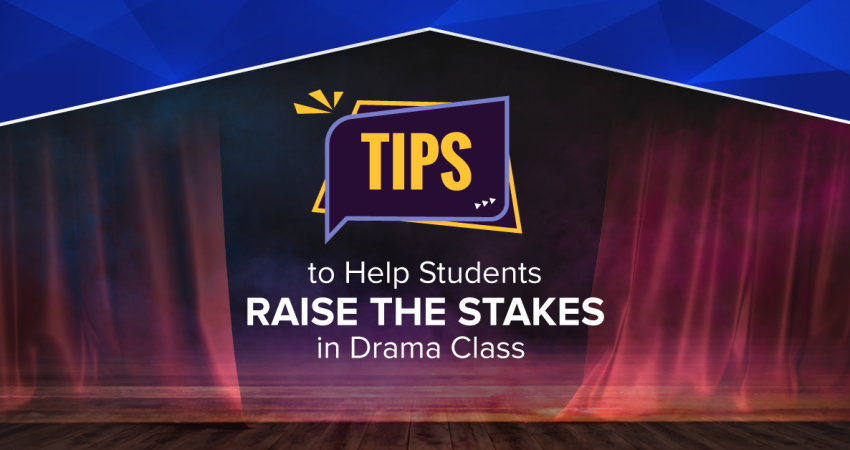“Bigger! Louder! More more More!” We always want our theater students to become larger than life on stage and in the classroom. How can we help our students raise the stakes and bring more energy to their work? Here are some tips to try if your students are holding back or not “going for it,” or if their scenes seem bland, safe, or small.
- Many students don’t want to put themselves out there because they’re worried about how their peers will see them. It can be helpful to do some confidence-building exercises to help your students feel more comfortable taking risks together. Try using Warm-up exercises to build confidenceand use the tips in Establishing trust with your students.
- Do you want me to do what on stage? is another good resource that can help you and your students explore what’s holding them back on stage.
- To do with nerves has five suggestions to help your students overcome their nervousness and deliver a bigger, bolder performance.
- Try baby steps. Work to gradually increase with your students Rehearsal Exercise Turn up the volume helps students develop their vocal and emotional performance.
- Be silly together. Show your students that you are willing to do the exercises with them. The Elephant Walk it’s a fun way to be silly together in class in a low-pressure way (no talking allowed).
- Add criteria that make everyone bigger. Ask students to do acting exercises or stage works where everyone has to stand or move in the second ballet position (legs wide and arms open) or shout their lines.
- Have students work through high-stakes exercises in class. Try In the worst case, What’s the worst that could happen?and “And if?” Game.
- Some students really don’t know how to improve their performance. If your students struggle to understand how to portray larger emotions on stage or their emotional performances are inconsistent, try using the tips in Physicalizing Emotions: How to Make Consistent and Repeatable Emotional Performances.
- Embrace the “and.” Have you heard the quote “Feel the fear and do it anyway”? Students can be nervous AND give a strong performance. Students can be concerned about their work on stage AND continue to do their best. Ask your students – when were they nervous or scared and pushed through it? If you’re comfortable doing this, share a story about a time when you were nervous or anxious and how you overcame it.
- In a hurry? Here are three quick video tips to deal with low energy on stage.
- How can you get your students to raise the stakes in drama?
- Challenge students to use better adjectives. For example, rather than having a character be upset, angry, or happy, try using devastated, furious, or ecstatic.
- Try to put your character in a bigger situation. What if your character was punished (or worse) for failing to complete their goal? What if the reward for achieving their goal was even greater than you originally thought?
- Have students write reflections on raising the stakes, taking risks, and being bold and courageous. You can find a selection of reflection questions in the download below.
Click here for a selection of reflection questions for your students.
Kerry Hishon is a director, actor, writer and stage fighter from London, Ontario, Canada. She blogs at www.kerryhishon.com.
Want to learn more about our newest pieces, resources, and giveaways?
Get on our list!

